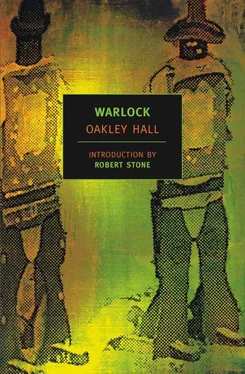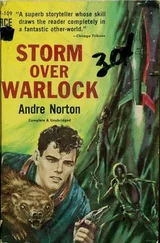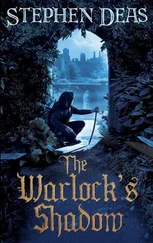“Hurst,” Clay said.
“Hurst. The sheriff got on him about going around that way. ‘Indecent!’ he yelled. ‘Why, shurf, I’ve been sewed inside these old long-johns for three years now and I’m not even sure I have got any skin underneath. Or I’d had them in the pot too, and then where’d we be?’
“Remember that?” he said, and laughed, and it hurt him to see Clay laughing with him. “Remember that?” he said again. “I was thinking about that. And how people get sewed up into things even lousier and dirtier than those long-handles of Hurst’s.”
He went on hurriedly, before Clay could speak. “And I was remembering back of that to that time in Grand Fork when those stranglers had me. They had me in a hotel room with a guard while they were trying to catch George Diamond and hang him with me. Kate splashed a can of kerosene around in the back and lit up, and came running upstairs yelling fire and got everybody milling and running down to see, and then she laid a little derringer of hers on the vigilante watching me. She got me out of that one. Like you did here, you and Jessie Marlow. I have never liked the idea of getting hung, and I owe Kate one, and you and Miss Jessie one.”
“What is this talk of owing?” Clay said roughly. He poured himself more whisky. “You can take it the other way too, Morg — that time Hynes and those got the drop on me. But I hadn’t thought there was any owing between us.”
No? he thought. It would have pleased him once to know that there was no owing between them; it did not please him now, for debts could be canceled, but if there were no debts then nothing could be canceled at all.
“Why, there are things owed,” he said slowly. And then he said, “I mean to Kate.”
Clay’s cheeks turned hectically red. Clay said in an uncertain voice, “Morg, I used to feel like I knew you. But I don’t know you now. What—”
“I meant about the deputy,” he said. He could not do it. “She is scared,” he said, and despised himself. “She is scared you and the deputy are going to come to it.”
“Is that what you have been working around to asking me?”
“I’m not asking you. I’m just telling you what Kate asked me.”
“There is going to be no trouble between the deputy and me,” Clay said stiffly. “You can tell Kate that.”
“I already told her that.”
Clay nodded; the color faded from his cheeks. The flat line of his mouth bent a little. “Foolishness,” he said.
“Foolishness,” Morgan agreed. “My, I have a time saying anything straight out, don’t I?”
Clay’s face relaxed. He finished the whisky in his glass. Then he said abruptly, “Jessie and me are getting married, Morg. If you are staying maybe you would stand up for me?”
It seemed to him it had been a long time coming, what he knew was coming. But he would not stand up for Clay this time. “When?” he said.
“Why, in about a week, she said. I have to get a preacher down from Bright’s City.”
“I guess I won’t be staying that long.”
“Won’t you?” Clay said, and he sounded disappointed.
He could not stay and stand up for Clay, and give the proper wedding gift to him and to his bride; not both. “No, I guess I can’t wait,” he said. “You will be married half a dozen times before you are through — a wonder like you. I will stand up for you at one of the others. Besides, there’s an old saying — gain a wife and lose your friend. What a man I used to travel with said. He said he had been married twice and it was the same both times. First wife ran off with his partner, and number two got him worked into a fuss with another one — shot him and had to make tracks himself.”
Clay was looking the other way. “I know she is not your kind of woman, Morg. But I’ll ask you to like her because I do.”
“I admire the lady!” he protested. “It is not every man that gets a crack at a real angel. It’s fine, Clay,” he said. “She is quite a lady.”
“She is a lady. I guess I have never known one like her before.”
“Not many like her. She is one to make the most of a man.”
“I’m sorry you can’t stay to stand for me.”
“Not in Warlock,” he said. “I’m sorry too, Clay.” He wondered what Clay thought he wanted, married to Miss Jessie Marlow — to be some kind of solid citizen, with all the marshaling and killing behind him and his guns locked away in a trunk? He wondered if Clay knew Miss Jessie would not allow it, or, if she would, that the others would not. And what was he, Clay’s friend, going to do? I will put you far enough ahead of the game, Clay, so you can quit, he thought. I can do that, and I will do it yet.
“Morg,” Clay said, looking at him and frowning. “What got into you just now?”
Morgan picked up his glass with almost frantic hurry. “How!” he said loudly, and grinned like an idiot at his friend. “We had better drink to love and marriage, Clay. I almost forgot.”
Grief gnawed behind his eyes and clawed in his throat as he watched Clay’s face turned reserved and sad. Clay nodded in acceptance and grasped his own glass. “How, Morg,” he said.
III
When he returned to his room at the hotel it was like walking into a furnace. He threw the window up and opened the door to try to get a breeze to blow the heat out. He had started to strip off his coat when Ben Gough, the clerk, appeared.
“Some miner just brought this by and wanted to know was you here.” Gough handed him a small envelope and departed. The envelope smelled of sachet, and was addressed in a thin, spidery script: Mr. Thomas Morgan . He tore open the flap and read the note inside.
June 1, 1881
Dear Mr. Morgan,
Will you please meet me as soon as possible in the little corral in back of “The General Peach,” to discuss a matter of great importance.
Jessie Marlow
He put his coat back on, and the note in his pocket. He was pleased that she had sent for him — the Angel of Warlock summoning the Black Rattlesnake of Warlock. Probably she would tell him that what she wanted for a wedding present was his departure.
He went outside, across Main Street, and down Broadway. The sun burned his shoulders through his coat. It was the hottest day yet, and it showed no signs of cooling off now in the late afternoon. There were a number of puffy, ragged-edged clouds to the east over the Bucksaws, some with gray bottoms. When he reached the corner of Medusa Street he saw that one was fastened to the brown slopes by a gray membrane. It was rain, he thought, in amazement. He walked on down past the carpintería and turned in the rutted tracks that led to the rear of the General Peach.
There was a small corral there, roofed with red tile. He entered, removing his hat and striking a cobweb aside with it. There was a loud, metallic drone of flies. The June-bride-to-be was sitting on a bale of straw, wearing a black skirt, a white schoolgirl’s blouse, and a black neckerchief. She sat primly, with her hands in her lap and her feet close together, her pale, big-eyed, triangular face shining with perspiration.
“It was good of you to come, Mr. Morgan.”
“I was pleased to be summoned, Miss Marlow.” He moved toward her and propped a boot on the bale upon which she sat; she was a little afraid he would get too close, he saw. “What can I do for you, ma’am?”
“For Clay.”
“For Clay,” he said, and nodded. “My, it is hot, isn’t it? The kind of day where you think what is there to stop it from just getting hotter and hotter? Till we start stewing in our own blood and end up like burnt bacon.” He fanned himself with his hat, and saw the ends of her hair moving in the breeze he had created. “Clay has told me you are being married,” he said. “I certainly wish you every happiness, Miss Marlow.”
Читать дальше







